November 28, 2025 | 04:01 GMT +7
November 28, 2025 | 04:01 GMT +7
Hotline: 0913.378.918
November 28, 2025 | 04:01 GMT +7
Hotline: 0913.378.918
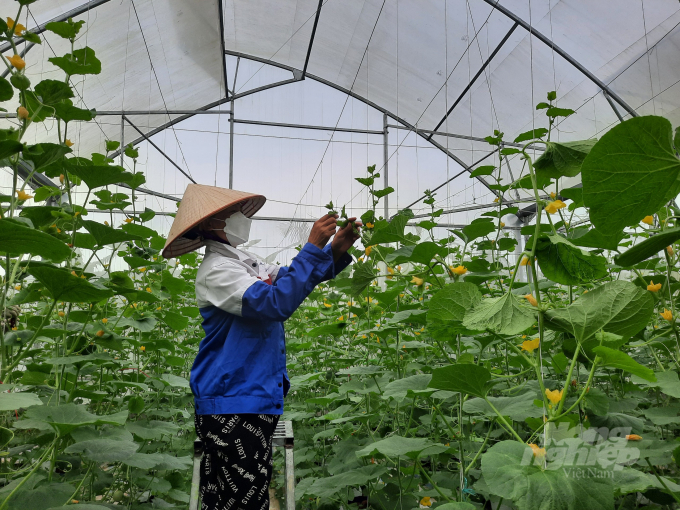
Since 2018, Dam Ha Trading and Construction Joint Stock Company (Dam Ha District, Quang Ninh) has implemented a project to produce safe vegetables with high technology application in Tan Thanh village, Quang Tan commune. The company has rented 5 hectares of land from people, invested more than VND 15 billion for infrastructure construction, expanded the net house area, and applied advanced new technology to production. Up to now, five greenhouses have been built to grow melons and vegetables according to VietGAP standards.
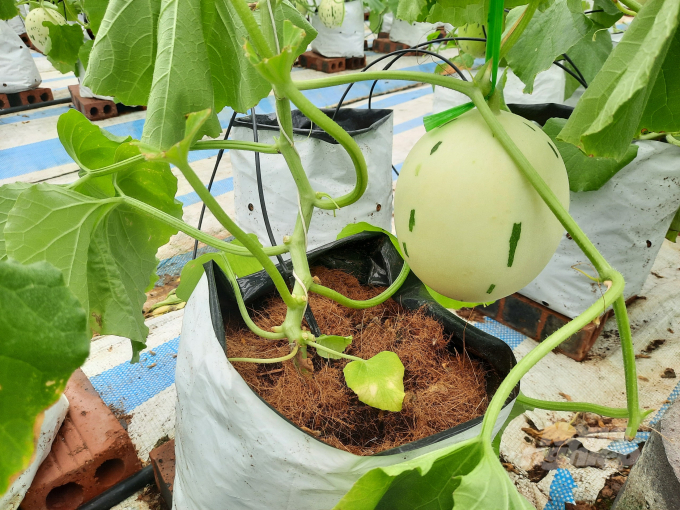
Besides applying Israeli drip irrigation technology, each melon gourd used 100% coir imported from the South and planted off the ground to help limit pests. In addition, the use of coir creates porosity and allows the tree to absorb nutrients for faster growth and sweeter fruit easily.
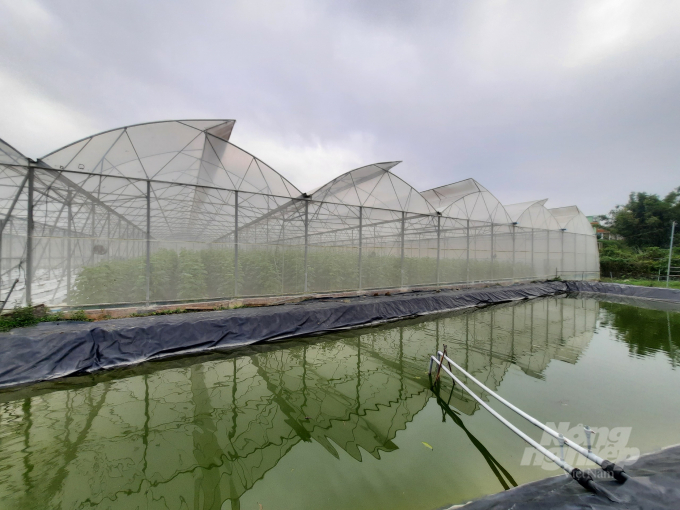
The entire membrane house system is irrigated with well water that has been filtered and treated, controlled by pH, to help the output products meet food safety and hygiene standards. Besides, an intelligent irrigation system saves labor and ensures the amount of water for plants.
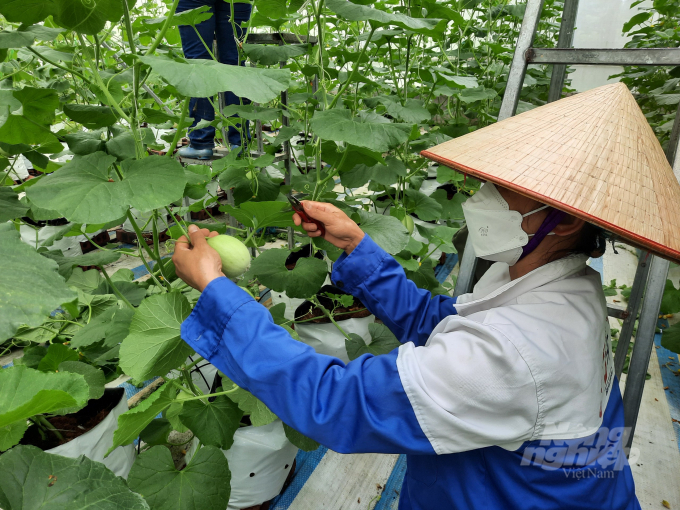
Technically, after sowing, the melon plants are arranged in rows and fixed with fixed strings. Flowering plants will conduct manual pollination. Each tree only leaves one fruit, pruning all the axillary branches to create ventilation and limit nutrient consumption. When the fruit has a diameter of 3-4 centimeters (about 40 days after planting), the tops should be stopped to focus on growing the fruit. From planting to harvesting, Cantaloupe takes 65-70 days; 3 crops a year can be developed. The Peruvian and Dutch melons yield about 1.3 kilograms per fruit. For Dutch cucumbers, the time from planting to harvest takes 45 days.
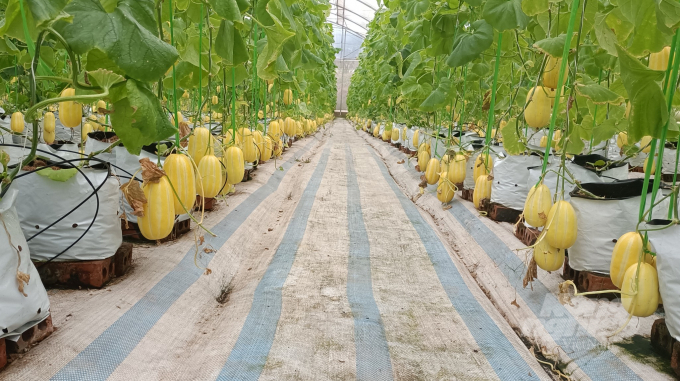
With prices from VND 45,000 to VND 65,000 per kilogram depending on the type of melon, Dam Ha Trading and Construction Joint Stock Company also packs and transports melons free of charge to customers, helping customers save money and time. Due to the good quality of service, all harvested melons can be sold at all. The time not affected by the Covid-19 epidemic, the company's organic melons bring in billions of income each year.
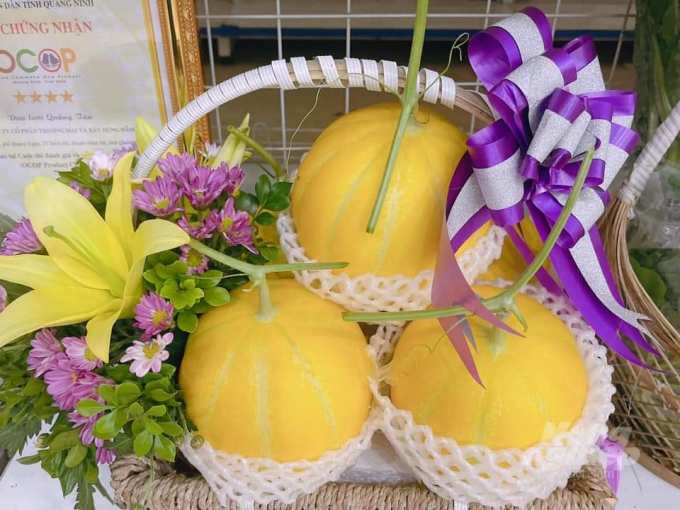
Quang Tan cantaloupe product of Dam Ha Trading and Construction Joint Stock Company has achieved a 4-star OCOP certificate right from the first registration. As a result, residents and tourists can visit, experience, buy and enjoy Quang Tan clean melon OCOP products right at the garden house.
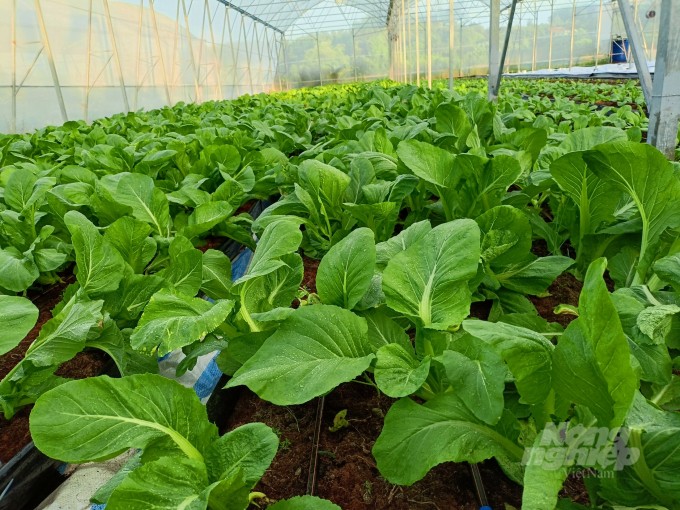
In addition to high-quality melons, the company also owns 3,000m2 of organic vegetables and Hong Kong vegetables with prices of VND 30,000-40,000 per kilogram. Mr. Tran Danh Cuong, Vice Chairman of Dam Ha District People's Committee, said that the promotion of high technology applications had created conditions to help farmers reduce risks from adverse effects of weather and pests. Simultaneously, it improves productivity and product quality compared to conventional methods.
Translated by Ha Phuc

(VAN) China’s cooking oil is suddenly flooding into India. It all comes down to a soybean surplus that Beijing doesn’t quite know what to do with.

(VAN) An Giang promotes supply-demand connections, standardizes quality and builds value chains, creating a foundation for sustainable bird’s nest development and aiming to expand exports.
/2025/11/24/5339-4-nongnghiep-075331.jpg)
(VAN) Recently, the conference on 'Sustainable Fisheries Linkage Chain - Tilapia for Export' took place in Tien Hai commune, Hung Yen province.
/2025/11/21/4309-2-153400_128.jpg)
(VAN) Green and low-emission rice is paving the way for Vietnamese rice to enter high-end markets, marking the beginning of a transformation journey toward greening and elevating the national rice brand.

(VAN) ‘Right to Win’ outlines a national action plan that shapes a new vision for Viet Nam’s agriculture in an era of renewal and global integration.

(VAN) Lam Dong’s farmed sturgeon output this year is expected to reach 2,300 tons, worth VND 450 billion, affirming the brand’s position on the market.

(VAN) A surge in Ukrainian egg exports, largely driven by soaring sales to the UK over the last few years, has notably pushed up egg prices on the domestic market.